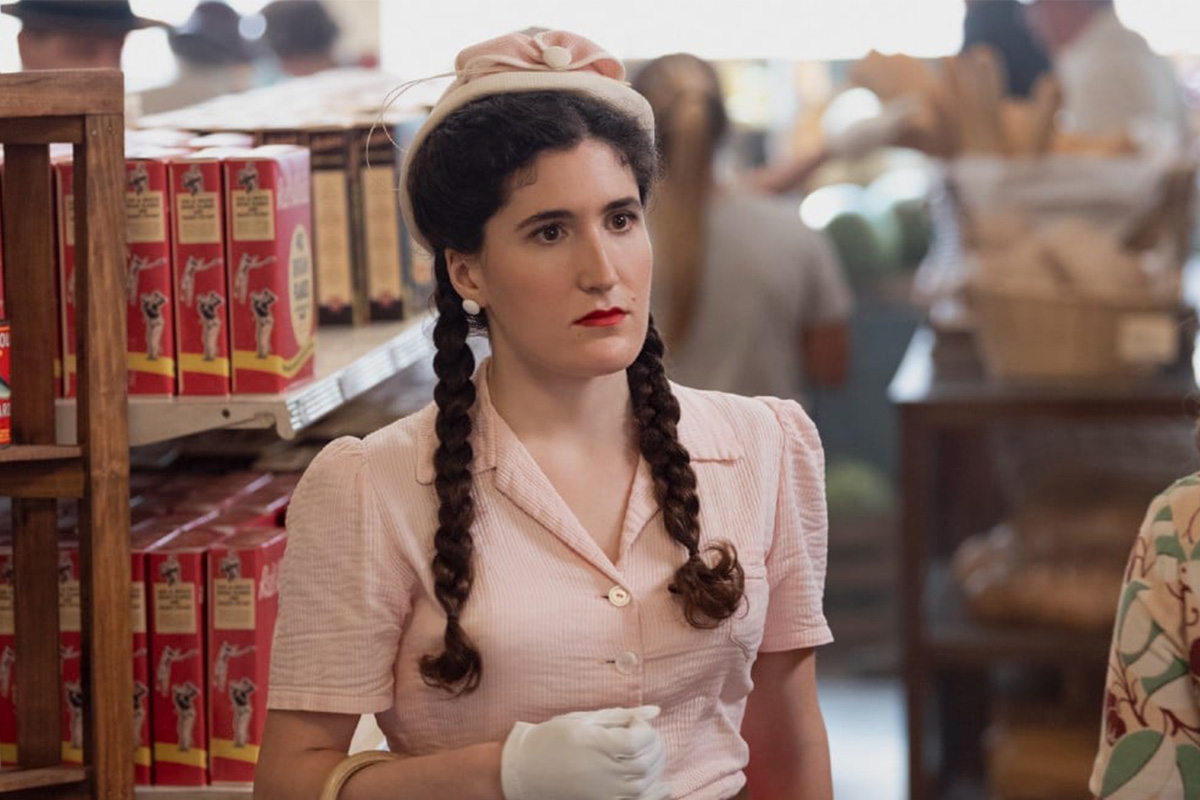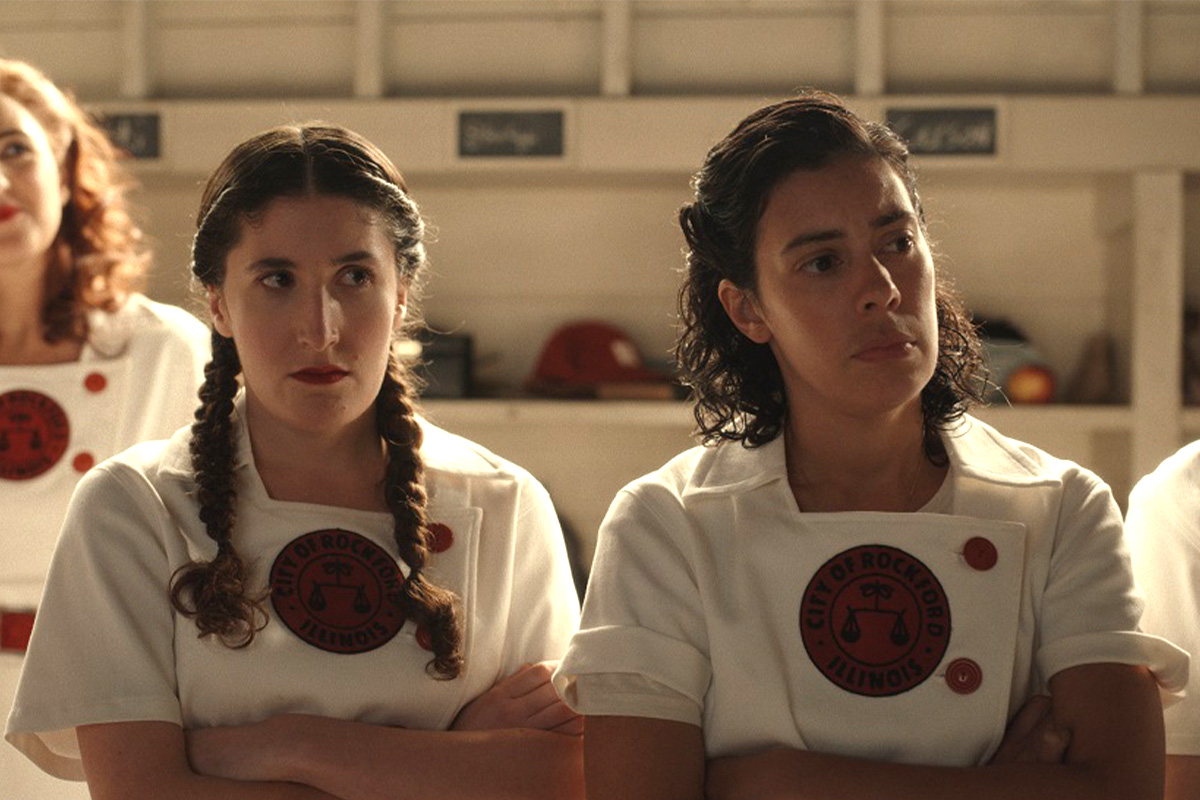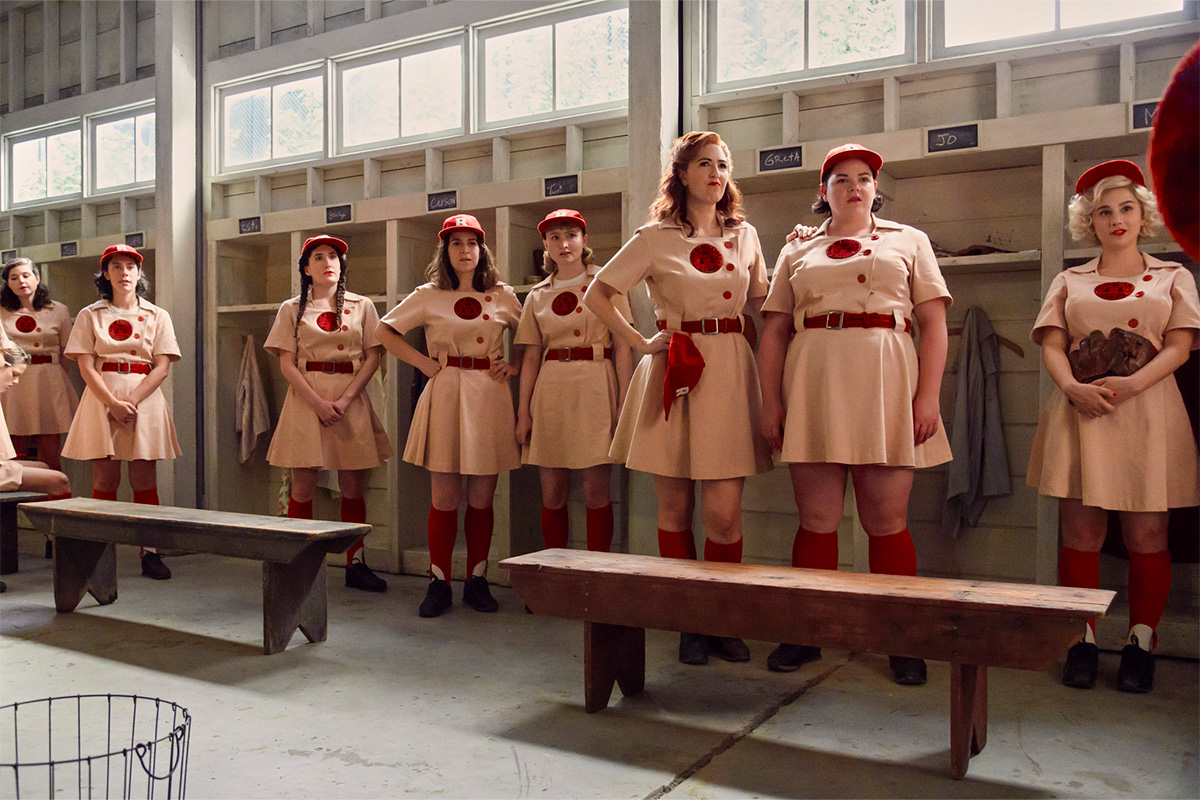I want to start by saying: I loved “A League of Their Own.” Like a lot of young Jews, I’ve been a fan of Abbi Jacobson and D’Arcy Carden since “Broad City.” And like a lot of lesbians, I’ve been a fan of the 1992 film “A League of Their Own” since I was cognizant of how subtext works. It’s safe to say that I’ve been looking forward to the new TV adaptation for a very long time. And for good reason — it is great.
It does what all the best stories do: It takes the very specific, and makes it universally relatable. When Jess (Kelly McCormack) insists on wearing pants in public despite it being against league rules, I thought of how hard it was for me to wear pants to the kosher supermarket for the first time. When Maxine (Chanté Adams) stammers through coming out to her best friend, I thought about how hard it was to come out to those closest to me. When Carson (Jacobson) tells Greta (Carden) that she’s not queer, that she’s “normal,” I thought of all the times when I desperately yearned for normalcy in a community where being gay was anything but.
When you read about the Amazon Prime series, you’ll read a lot about how good the on-screen representation is, and that’s true. Not only is it great television, but it showcases a variety of queer characters, fleshing out their relationships with one another as they navigate a world where being gay is still illegal. Every character is built with pathos and compassion, every storyline is handled with the utmost care, and it shows; the series is a success with audiences and critics alike.
But then there’s Shirley Cohen.

One of our first times seeing Shirley, played by Jewish actress Kate Berlant, is when she unpacks a humidifier from her suitcase — that’s right, a humidifier in 1943. She sets it up and says something about its health benefits that quickly gets dismissed by her roommate Carson, a dynamic that is repeated throughout the show. Shirley plays a few different roles on the team: She’s the resident hypochondriac who’s deathly afraid of botulism, the statistician math whiz who keeps track of championship likelihood, the sexless rule follower who chaperones dates to make sure things stay appropriate, and the resident homophobe who is terrified of catching homosexuality from others.
Shirley is, for all intents and purposes, several Jewish stereotypes bundled together into a character; instead of nuance, she has neuroses and God, does she have a lot of them. Each of the roles Shirley plays — the hypochondriac, the sexless rule follower, the statistician, the homophobe — is a stereotype we’ve seen a million times before. I guess what’s so frustrating is that “A League of Their Own” feels so brand new and alive, I find myself asking why they needed Shirley at all? In a show set in the Midwest, why is the only outwardly homophobic member of the Rockford Peaches the Jewish one? The show has (spoiler alert) a literal gay bashing, and yet for a lot of the series, Shirley is more of a threat to her gay teammates than anyone or anything else. More than that, the other straight Peaches don’t mind when their teammate is outed — Shirley is the only character who needs a rousing inspirational speech to abandon her rabbi’s ideas about contagious homosexuality.
The longer the show went on, the angrier I felt. “A League of Their Own” made me feel seen in so many ways, through so many characters. And yet, every time Shirley came on the screen I wanted to scream. It would be one thing to have a Jewish character whose Jewish identity felt explored and three dimensional, but Shirley’s Jewishness is continually played for laughs; it’s the thing that makes her a bad friend. And don’t even get me started on how apparently her Jewish accent is so undecipherable, the subtitles repeatedly misspell words of dialogue (Moshe is not spelled Mosha, and her last name isn’t Cowen!!!!!). Did none of the several Jews working on this show see anything wrong with what was happening?

Perhaps most ironic of all is that as I watched (and rewatched) the show, I kept thinking about how good it would be for LGBT+ Jewish people to watch. So many of us know what it’s like to be from unforgiving communities, to be worried about who we’ll be seen with and what the neighbors will say. Too many of us know what it feels like to be torn between who we are and who our family wants us to be. In a show that makes me feel all of these realities so deeply, Shirley feels like a real stab in the back at the end of the day.
She’s the reason I have to add a caveat when I recommend this show — “it’s amazing, but there’s also a slightly problematic Jewish character.” But I shouldn’t need a caveat. I should be able to watch lesbians in TV shows and be excited that I finally get good representation after living through so many years of utter garbage. I shouldn’t be worried that I’m about to see what is essentially an antisemitic caricature quote her rabbi’s sermon on homosexuals.
At what point do I get to watch good TV without feeling like I’m betraying my Jewishness? When can I stop sacrificing my standards of Jewish characters? Why do I have to sacrifice seeing good Jews for seeing good queer people?



